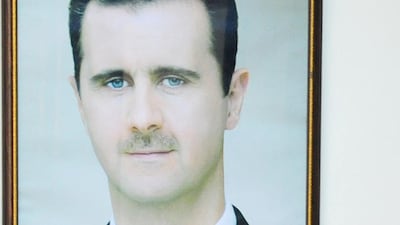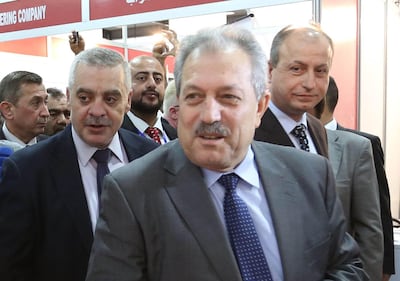Syrian President Bashar Al Assad on Thursday dismissed Imad Khamis as prime minister and appointed Water Minister Hussein Arnous in his place, according to a short statement on state media.
No reason was given for the removal of Mr Khamis, who held the post since 2016.
Under the Assad family regime, Syria's prime ministers are appointed from the Sunni majority, but the post is largely inconsequential as all power is held by an inner circle dominated the president's Alawite minority.
Mr Al Assad's sudden move appears to be designed to absorb discontent among loyalists as regime-held regions lurch off an economic cliff with the currency in freefall.
The collapse in the Syrian pound contributed to sporadic demonstrations breaking out this week in the Druze majority governorate of Suweida. The regime considers the Druze a loyalist fellow minority.
An increasingly public feud between the president and his cousin, the oligarch Rami Makhlouf, exposed the wealth of the inner circle at a time of severe economic hardship that affects the regime's core support base comprising Alawites and other minorities.
The sharp fall in the Syrian currency in recent weeks to 2,450 pounds per dollar has pushed even the middle class into hardship with the cost of basic commodities rising rapidly. The pound was trading at 50 pounds to the dollar when a public revolt against Assad family rule broke out in March 2011.
Mr Arnous, born in 1953, has served as water minister since November 2018 and was previously the public works and housing minister.
State media said Mr Al Assad had tasked Mr Arnous with the duties of the prime minister as well as his current responsibility as water minister.
Before he became prime minister, Mr Khamis served as electricity minister and was sanctioned by the European Union in 2012 for his role in using power cuts to punish and silence the 2011 uprising.
The peaceful revolt had militarised by the end of the year, largely in reaction to the abduction and killing of thousands of demonstrators by the security forces. The country fractured during the ensuing civil war into Russian, US, Iranian and Turkish spheres of influence.
Syrian war in pictures





















